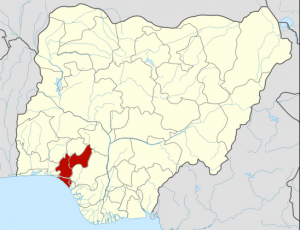Ukrainian jet victim ran company suspected by UN of violating Libyan arms embargo

Olena Malakhova, 38, had been allocated a place in the second row of Ukraine International Airlines Flight 752 from Tehran to Kiev, according to a seating plan of the aircraft seen by CNN.She was one of only two Ukrainian passengers on the plane, which crashed shortly after takeoff from the Iranian capital on January 8, killing everyone on board. Iran says it shot down the plane by mistake.Malakhova was a director of a company called SkyAviaTrans, which is based in Ukraine, and the co-owner of a linked firm named Volaris Business, whose registered office is in Edinburgh, Scotland.The companies advertise themselves as passenger jet and air freight businesses. The slogan on the website of Volaris Business reads “more than a passenger and goods company” while SkyAviaTrans’ motto is “Anything, Anytime, Anywhere, Professionally.”Since August 2018, Malakhova has been listed at Companies House, the UK’s official registry of businesses, as one of two beneficial owners of Volaris. Malakhova was also a director of SkyAviaTrans, a spokesperson for the company told CNN. The companies’ only cargo plane was destroyed in a drone attack in Libya in August 2019. The aircraft, an Ilyushin Il-76TD, owned by Volaris and operated by SkyAviaTrans, was targeted by forces loyal to the Libyan strongman Khalifa Haftar shortly after it landed in his rivals’ coastal stronghold of Misrata. Its crew of eight survived the strike.SkyAviaTrans and Volaris said at the time that the flight was carrying humanitarian aid from the Turkish capital Ankara, a claim supported by Ukraine’s government. However, at a press conference after the incident, the self-styled Libyan National Army said it blew up the craft because it was carrying military hardware destined for its foes in the United Nations-recognized Government of National Accord in Tripoli.Arms embargo ‘blatantly’ floutedIn its latest report on the United Nations arms embargo in Libya, published in December, a UN panel of experts said some of the body’s own member states, including Turkey and the UAE, had systematically violated the ban and “routinely and sometimes blatantly supplied weapons, employing little effort to disguise the source.” The report said much of the weaponry was sent in the form of parts for drones, which have dominated the fighting in recent years. The drone parts were often disguised as car parts, it suggested.The UN experts examined the attack on the SkyAviaTrans/Volaris plane.They concluded that the light payload for the type of aircraft and anomalies in its documentation meant “the cargo was military material of high volume and relatively low mass, such as the fuselage and wings of unmanned combat aerial vehicles,” otherwise known as drones. It was “neither realistic nor credible” that the Libyan government would have needed so many car parts in such a short period of time, and that it would have transported them in a such an expensive manner, the panel said. A German company which chartered the planes on behalf of the Libyan government was found to have broken the UN embargo. The panel did not go as far as to find SkyAviaTrans and Volaris in breach of the arms ban but noted that the plane’s cargo documentation explicitly stated its load contained “NO DG (dangerous goods), NO AMMO, NO WEAPON.” Such a designation was suspicious, the experts said. “Such information is not routinely submitted, nor required, unless designed to try and disguise the military nature of the cargo,” the panel said in its report for the UN. SkyAviaTrans’ and Volaris’ protocols for conducting due diligence were “totally inadequate and not fit for purpose,” the experts said.The UN report does not explicitly say that Malakhova knew that her companies’ plane was carrying illicit arms. But it states that Volaris took responsibility for the customs permits and other documentation on flights operated by SkyAviatrans, citing a contract between the two entities. The contract was signed on behalf of Volaris by “O.M.,” the UN panel said, who was listed as an “individual person with significant control” at Companies House. That listing, which is publicly available, names Olena Malakhova in full.Maksym Pryokhdko, a former ground handling manager for SkyAviaTrans, told CNN by telephone that although the firm had a permit to ship dangerous goods, those could include solvents and chemicals. The SkyAviaTrans spokesperson declined to comment on the UN experts’ report. Malakhova’s husband, Dmitry Salikhov, who answered a phone number listed on Volaris’ website, said he was too upset to talk. He did not respond to a follow-up email.Less than a week before the plane was struck in Libya, Ukraine barred its carriers from flying to the country “due to the ‘worsening security situation’,” the UN experts noted. SkyAviaTrans and Volaris had obtained an exemption to the ban, claiming they were working for the Libyan Red Crescent, according to the UN panel. In its December 9 report, the panel said it was “not yet convinced of the veracity of the documentation supplied by SkyAviatrans to the Ukrainian authorities to obtain the exemption and continues to investigate.” A spokesperson for the Libyan Red Crescent told CNN that it had no connections with SkyAviaTrans or Volaris, nor with Malakhova. “We have no relationship with the subject of this report… the Libyan Red Crescent has nothing to do with this at all.”Purpose of Iran trip unknownIt’s not known what Malakhova was doing in Tehran at the start of this year. The SkyAviaTrans spokesperson said the firm did no business in Iran and was not aware its head was in the country at the time. Malakhova, the spokesperson said, had spent recent months focused on finding funds to replace the company’s destroyed plane.Flight records from the airline tracking site flightradar24 show that between May and August 2019, when the aircraft was blown up, it made more than 30 flights between Ukraine, Turkey and Libya. Before that, the plane had shuttled between the UAE and Aden, Yemen, where Emirati fighters were embroiled in a Saudi-led effort to unseat Iran-backed Houthi rebels, making 13 trips in November and December 2018.It had also made half a dozen flights to Afghanistan that year, after the UAE announced a new project to train Afghan forces fighting Islamic insurgents. The SkyAviaTrans spokeswoman would provide no information about the flights, nor who chartered them.Two former colleagues CNN reached by telephone in Ukraine said Malakhova’s family was devastated by the news. One described Malakhova, who was married with two young sons, as “polite and professional.”On Facebook, friends of Malakhova expressed their grief at her death. One posted a message saying: “This flight took you straight to the sky. I hope you will be calm there.” CNN’s Gianluca Mezzofiore and Nada Bashir contributed to this report




